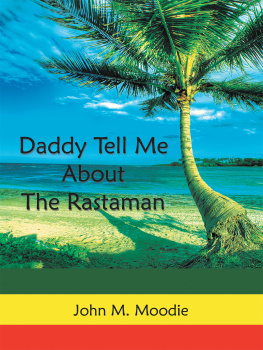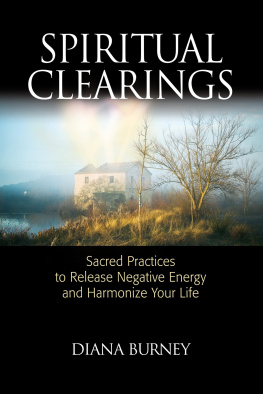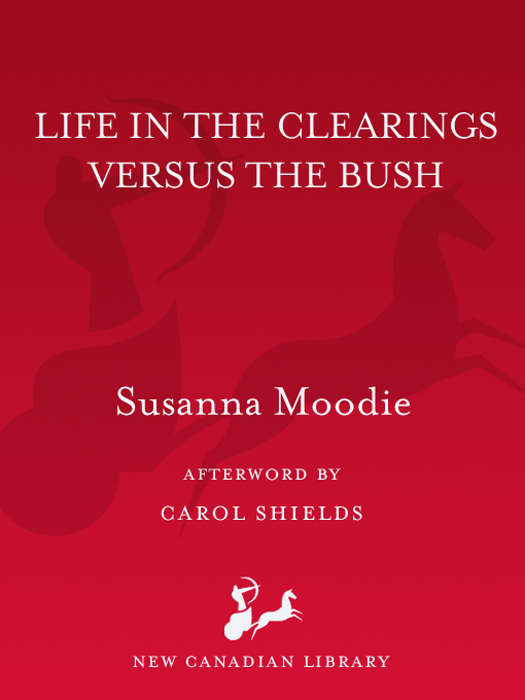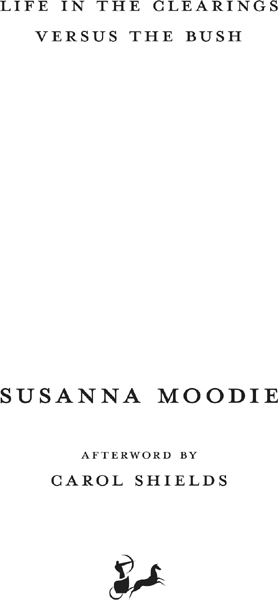THE AUTHOR
SUSANNA MOODIE was born Susanna Strickland in Bungay, Suffolk, England, in 1803. The sixth and final daughter of a retired dock manager, she grew up in a middle-class family that encouraged the children in reading and in writing. Her sisters Agnes and Elizabeth would write Lives of the Queens of England and other biographies of the aristocracy, her sister Catharine Parr (later Traill) would emigrate to Canada and write several natural history books, and her brother Samuel, another emigrant to Canada, would write of the settlers life. Susannas juvenilia include poetry and many fiction tales for young adults.
In 1831 Susanna Strickland married John Wedderburn Dunbar Moodie, a military officer who had returned to England from South Africa to explore publication projects and to find a wife. A year later, they emigrated to Upper Canada (Ontario). In Flora Lyndsay (1854), Susanna Moodie gives a fictionalized account of the familys move to Canada, concluding with the journey up the Saint Lawrence River.
For their first seventeen months in Canada, the Moodies lived on cleared farmland near Port Hope. In 1834 they moved to a bush farm in Douro Township north of Peterborough and near the homes of Samuel Strickland and Catharine Parr Traill. The farm was the Moodie home for five years, and Roughing It in the Bush (1852), describes their life in these two backwoods areas.
From 1837 to 1839 Dunbar Moodie served in the Upper Canada militia, and in 1839 he was appointed Sheriff of Victoria District (later Hastings County). His family moved to Belleville in 1840, their home until his death in 1869. After her husbands death Susanna Moodie spent her time with her various grown children and with her sister Catharine.
Susanna Moodie died in Toronto, Ontario, in 1885.
THE NEW CANADIAN LIBRARY
General Editor: David Staines
ADVISORY BOARD
Alice Munro
W.H. New
Guy Vanderhaeghe
to
John Wedderburn Dunbar Moodie, Esq.
Sheriff of the County of Hastings,
Upper Canada,
this work is affectionately dedicated,
by his attached friend
and wife,
Susanna Moodie.
I sketch from Nature, and the draught is true.
Whateer the picture, whether grave or gay
Painful experience is a distant land
Made it mine own.
CONTENTS
INTRODUCTION
Dear foster-mother, on whose ample breast
The hungry still find food, the weary rest;
The child of want that treads thy happy shore,
Shall feel the grasp of poverty no more;
His honest toil meet recompense can claim,
And Freedom bless him with a freemans name!
S.M .
I n our work of Roughing it in the Bush, I endeavoured to draw a picture of Canadian life, as I found it twenty years ago, in the Backwoods. My motive in giving such a melancholy narrative to the British public, was prompted by the hope of deterring well-educated people, about to settle in this colony, from entering upon a life for which they were totally unfitted by their previous pursuits and habits.
To persons unaccustomed to hard labour, and used to the comforts and luxuries deemed indispensable to those moving in the middle classes at home, a settlement in the bush can offer few advantages. It has proved the ruin of hundreds and thousands who have ventured their all in this hazardous experiment; nor can I recollect a single family of the higher class, that have come under my own personal knowledge, that ever realised an independence, or bettered their condition, by taking up wild lands in remote localities; while volumes might be filled with failures, even more disastrous than our own, to prove the truth of my former statements.
But while I have endeavoured to point out the error of gentlemen bringing delicate women and helpless children to toil in the woods, and by so doing excluding them from all social intercourse with persons in their own rank, and depriving the younger branches of the family of the advantages of education, which, in the vicinity of towns and villages, can be enjoyed by the children of the poorest emigrant, I have never said anything against the REAL benefits to be derived from a judicious choice of settlement in this great and rising country.
God forbid that any representations of mine should deter one of my countrymen from making this noble and prosperous colony his future home. But let him leave to the hardy labourer the place assigned to him by Providence, nor undertake, upon limited means, the task of pioneer in the great wilderness. Men of independent fortune can live anywhere. If such prefer a life in the woods, to the woods let them go; but they will soon find out that they could have employed the means in their power in a far more profitable manner than in chopping down trees in the bush.
There are a thousand more advantageous ways in which a man of property may invest his capital, than by burying himself and his family in the woods. There never was a period in the history of the colony that offered greater inducements to men of moderate means to emigrate to Canada than the present. The many plank-roads and railways in the course of construction in the province, while they afford high and remunerative wages to the working classes, will amply repay the speculator who embarks a portion of his means in purchasing shares in them. And if he is bent upon becoming a Canadian farmer, numbers of fine farms, in healthy and eligible situations, and in the vicinity of good markets, are to be had on moderate terms, that would amply repay the cultivator for the money and labour expended upon them.
There are thousands of independent proprietors of this class in Canada men who move in the best society, and whose names have a political weight in the country. Why gentlemen from Britain should obstinately crowd to the Backwoods, and prefer the coarse, hard life of an axe man, to that of a respectable landed proprietor in a civilised part of the country, has always been to me a matter of surprise; for a farm under cultivation can always be purchased for less money than must necessarily be expended upon clearing and raising buildings upon a wild lot.
Many young men are attracted to the Backwoods by the facilities they present for hunting and fishing. The wild, free life of the hunter, has for an ardent and romantic temperament an inexpressible charm. But hunting and fishing, however fascinating as a wholesome relaxation from labour, will not win bread, or clothe a wife and shivering little ones; and those who give themselves entirely up to such pursuits, soon add to these profitless accomplishments the bush vices of smoking and drinking, and quickly throw off those moral restraints upon which their respectability and future welfare mainly depend.
The bush is the most demoralizing place to which an anxious and prudent parent could send a young lad. Freed suddenly from all parental control, and exposed to the contaminating influence of broken-down gentlemen loafers, who hide their pride and poverty in the woods, he joins in their low debauchery, and falsely imagines that, by becoming a blackguard, he will be considered an excellent backwoodsman.
How many fine young men have I seen beggared and ruined in the bush! It is too much the custom in the woods for the idle settler, who will not work, to live upon the new comer as long as he can give him good fare and his horn of whisky. When these fail, farewell to your











